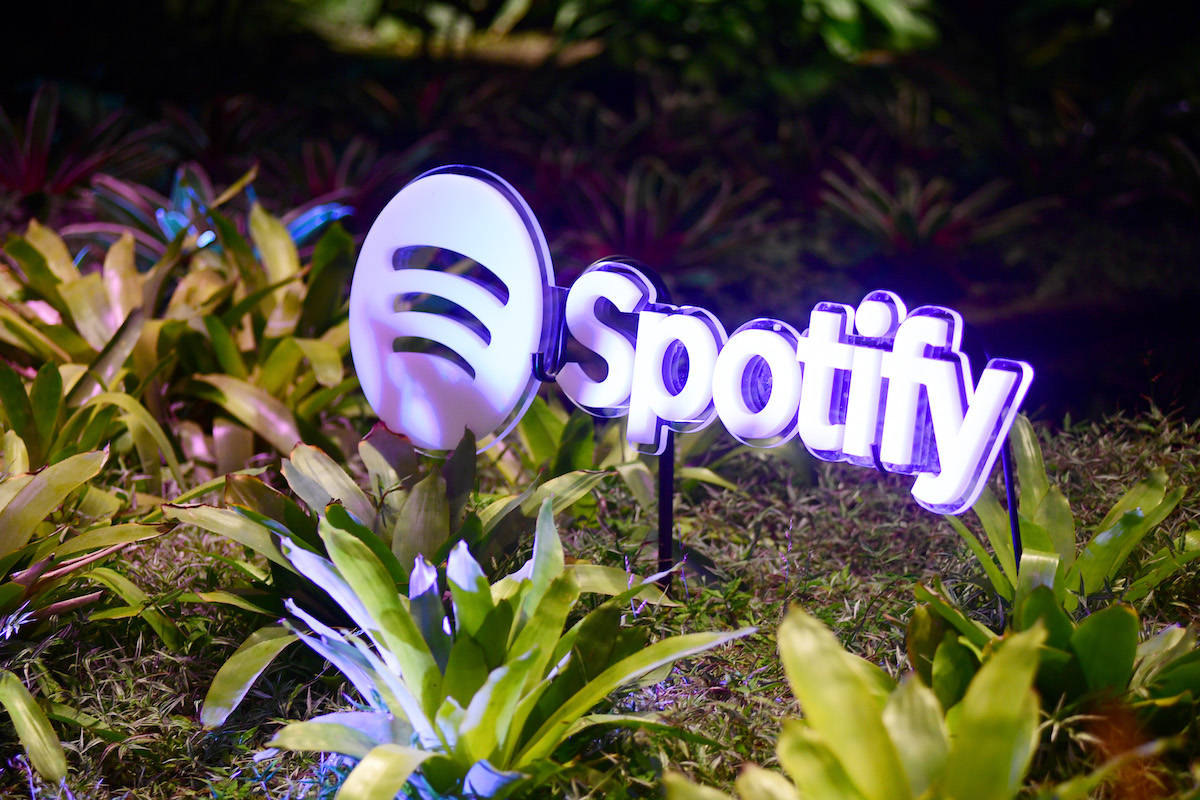U.K. Authors’ Union Speaks Out Against Spotify’s New Audio Book Features

If video killed the radio star, streaming services brought the sound-only media industries back to life. And recently, the leaders of Spotify have been responsible for trying any tactic to keep their streaming service at the top. Since the company’s CEO, Daniel Ek, boosted Spotify into a multi-platform dominator, Spotify took down Apple in the number one sound spot by adding podcasts into their formerly music-only space in 2019, and now, the revolutionary subscription service is poised to corner the audiobook market as well, where Amazon’s Audible has long held the torch. While this might be great news for Spotify listeners, authors are concerned about the big old bite this new symptom will take out of their direct sales profits.
The Society of Authors, a writers’ union in the U.K., has officially registered its displeasure with Spotify’s international plan to make 15 hours per month of available audiobooks free for subscribers to listen to, citing the “the devastating effect that music streaming has had on artists’ incomes” in the music industry. “The streaming of audiobooks competes directly with sales and is even more damaging than music streaming because books are typically only read once, while music is often streamed many times,” a statement from the SoA read. Since the beginning of October, subscribers in Australia and the U.K. have been able to stream 15 hours of audiobooks on Spotify, and United States subscribers are supposed to receive this service sometime this winter. American customers can currently individually purchase audiobooks through Spotify, but the system is rather new and isn’t streamlined.
Several leading publishers, like “Hachette, HarperCollins Publishers, Macmillan, Penguin Random House, Simon & Schuster, and RB Media” have signed deals to make their entire catalog of audiobooks available for streaming on Spotify, according to a press release, while some publishers are only releasing a selected portion. Still, that’s over 150,000 titles instantly available, and if you’re already a premium subscriber, you don’t have to do anything. You’ll automatically be granted access. One way Spotify’s listening arrangement with consumers differs from Audible, which dominates the audiobook market now, is that a Spotify subscription will grant a subscriber a certain number of hours of audiobook listening each month, whereas Audible and most other audiobook services give their memberships a certain number of full audiobooks per subscription, per month.
Members of the SoA said they’re angry because it seems like publishing higher-ups have known about the deal long enough to research it and sign it, and the agents and actual authors are just hearing about it after it’s already been signed. “How will earnings from these streaming deals be calculated?” SoA’s chief executive, Nicola Solomon, asked. “How can we ensure that such deals do not compete with sales and that authors are fully remunerated? What will it mean for longer-term earnings? What protections are publishers putting in place against piracy and unrestrained uses?”
“We urgently need the publishers involved to have the conversations with authors and agents now, which they should have had before these deals were made,” she added.
Members of the SOA are calling for clear protections for authors, including “an equitable payment model,” which seems awfully hard to nail down, and it begs the question if there will soon be some sort of striking warranted in the publishing community. There is a lot of risk for the authors that no-buy streaming will cut directly into outright sales, with no way to prove exactly how much.
Still, the publishers do stand to bring a whole new audience to the world of audiobooks. There are a lot of people who listen to free podcasts but haven’t delved into audiobooks, partly because of the steep paywall. This new system will remove that friction. And, while it’s true that streaming almost killed the music industry because people were downloading free music and artists weren’t being paid, it was platforms like Spotify and Apple Music that gave musicians a tiny thread of income to hold onto while they figured out new post-Y2K ways to monetize music.
We don’t yet know exactly what Spotify’s 15 hours per month of audiobooks subscription will do to the book industry and the authors at its center, but we are very keen to find out.
(via The Guardian, featured image: Timothy Hiatt/Getty)
Have a tip we should know? tips@themarysue.com